
Gut Health and Immunity: How a Healthy Gut Strengthens Your Immune System Naturally
We often think of the immune system as something that

Kick-start, energise, rejuvenate
All carefully planned and prepared to help nourish, reset and rejuvenate the body and mind.
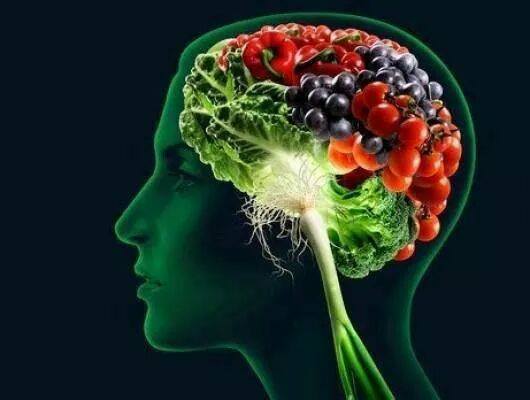
In this age, mental prowess is an indispensable requirement regardless of our pursuits. Physical strength alone is inadequate to thrive in today’s world. To function at peak performance, the brain necessitates specialised assistance.
Herbs and superfoods possess the potential to offer strong support and safeguard for your brain. Additionally, tonic herbs and superfoods have the ability to positively affect the mind. These natural remedies have been used for this purpose for thousands of years and have been proven to be safe for consumption by millions of individuals across the globe. As tonics and superfoods, they can be taken for an extended period without any concerns.

Hydrogen Water: Hydrogen water is a potent antioxidant that can neutralize harmful free radicals and reduce oxidative stress in the brain. Doing so, can help protect brain cells from damage and improve cognitive function. Studies have shown that hydrogen water can improve memory, attention, and reaction times in individuals with mild cognitive impairment.
Hydrogen water can also improve blood flow to the brain, which is essential for delivering oxygen and nutrients to brain cells. This increased blood flow can enhance brain function and reduce the risk of age-related cognitive decline.
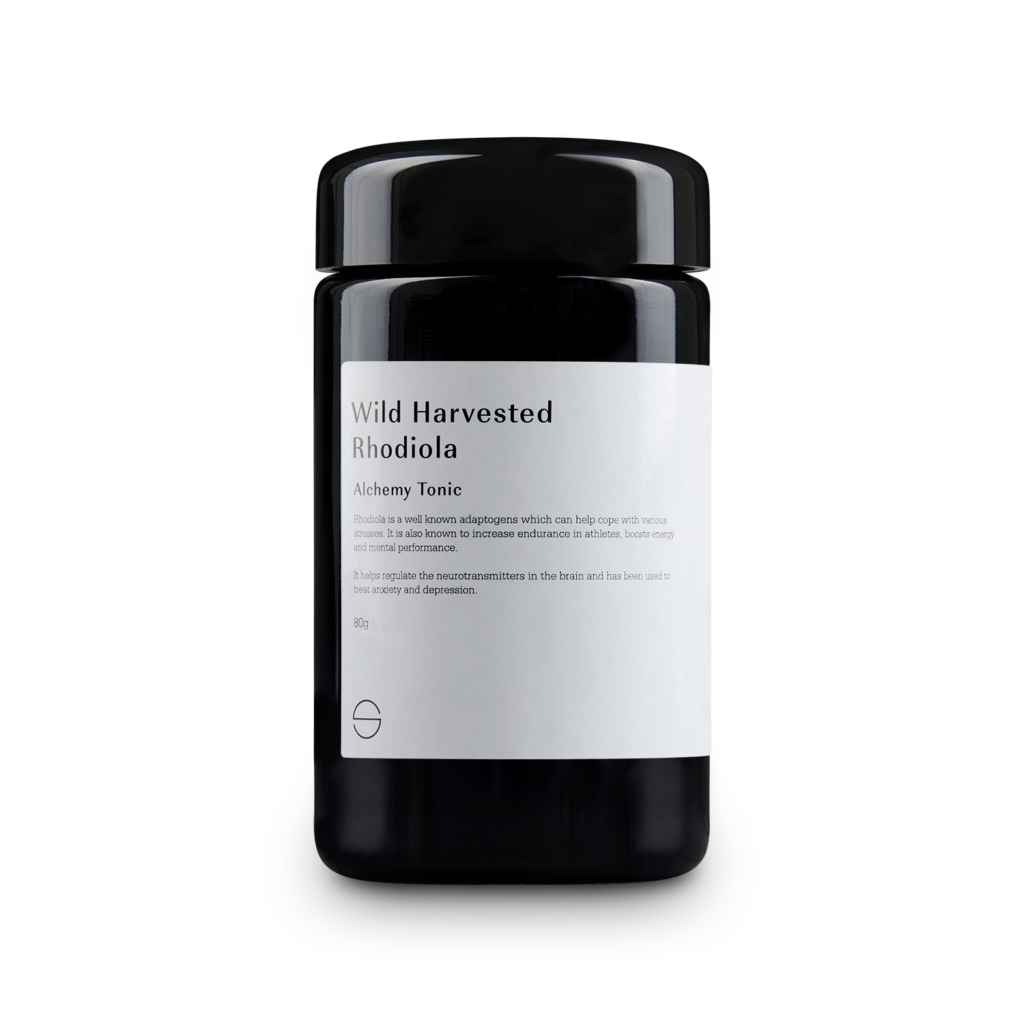
Rhodiola: One way that Rhodiola supports brain function is by reducing stress and anxiety. Rhodiola has been found to have adaptogenic properties, which means that it helps the body adapt to stress and maintain balance. By reducing stress and anxiety, Rhodiola can improve mental clarity and focus, and enhance overall cognitive performance.
Rhodiola has also been found to have neuroprotective properties, which means that it can protect the brain from damage caused by oxidative stress and inflammation. This is important because oxidative stress and inflammation have been linked to cognitive decline and neurological disorders such as Alzheimer’s disease.
Rhodiola has been found to increase PEP levels in the brain. PEP is a molecule that plays an important role in energy metabolism and is involved in the production of ATP, which is the primary source of energy for the body’s cells. This increase in PEP levels has been found to occur through the activation of an enzyme called pyruvate kinase, which is involved in the production of ATP.
The increase in PEP levels that occurs with Rhodiola supplementation is particularly beneficial for individuals who are fatigued or under stress. This is because PEP plays a critical role in energy production, and when levels are low, it can result in fatigue and decreased cognitive function.
In addition to its effects on PEP levels, Rhodiola has also been found to modulate other molecules in the brain that are involved in energy metabolism and cognitive function, including acetylcholine and dopamine. These effects may also contribute to the cognitive-enhancing and mood-enhancing effects of Rhodiola.
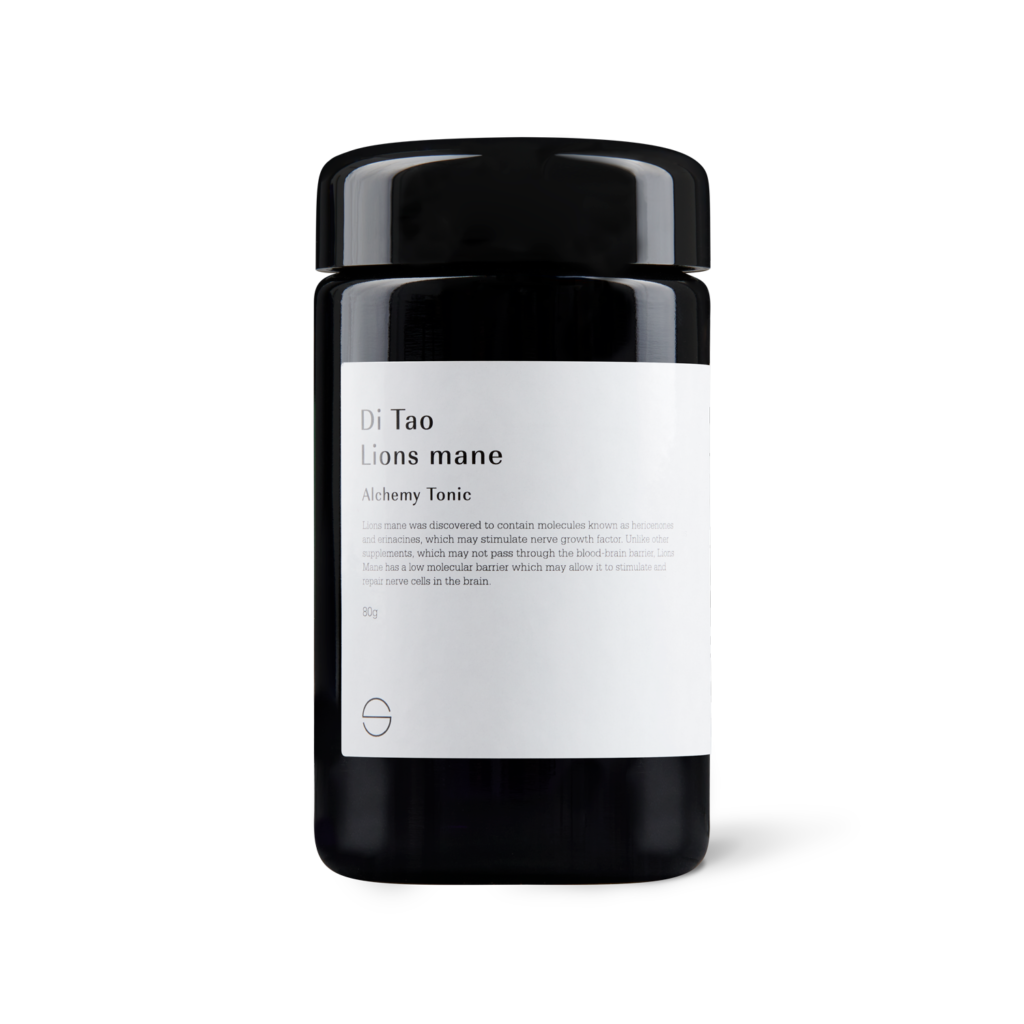
Lions Mane: One of the primary ways that Lions Mane supports brain function is through its ability to promote nerve growth. Lion’s mane contains compounds called erinacines and hericenones, which have been found to stimulate the growth of nerve cells in the brain. This can help to improve cognitive function and protect against age-related cognitive decline.
Lions Mane has also been found to enhance cognitive function in several ways. Studies have shown that Lions Maine can improve memory, focus, and attention in both healthy individuals and those with cognitive impairment. This is thought to be due to its ability to promote the growth of new nerve cells and to increase the levels of certain neurotransmitters in the brain.
Because Lions Maine has neuroprotective effects, protecting the brain from damage caused by oxidative stress and inflammation, Lions Mane has the potential as a natural therapy for many neurodegenerative diseases, including Alzheimer’s and Parkinson’s.
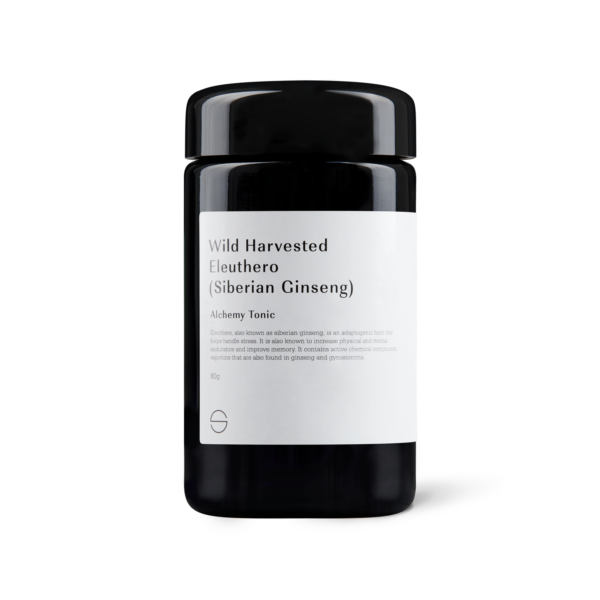
Eleuthero/Siberian Ginseng: Eleuthero has been found to enhance cognitive performance in healthy individuals. Studies have shown that it can improve mental clarity, focus, and memory, and increase reaction time and accuracy. This can help individuals perform better in their daily activities.
Because Eleuthero has adaptogenic properties it has been found to reduce mental and physical fatigue, which can help to improve cognitive function and overall well-being.
Eleuthero has antioxidant and anti-inflammatory properties that may help protect the brain from damage caused by oxidative stress and inflammation. This may be beneficial in preventing or slowing down the progression of neurodegenerative diseases.
Eleuthero has been also found to support the growth and survival of brain cells, which can help to maintain healthy brain function and prevent cognitive decline.
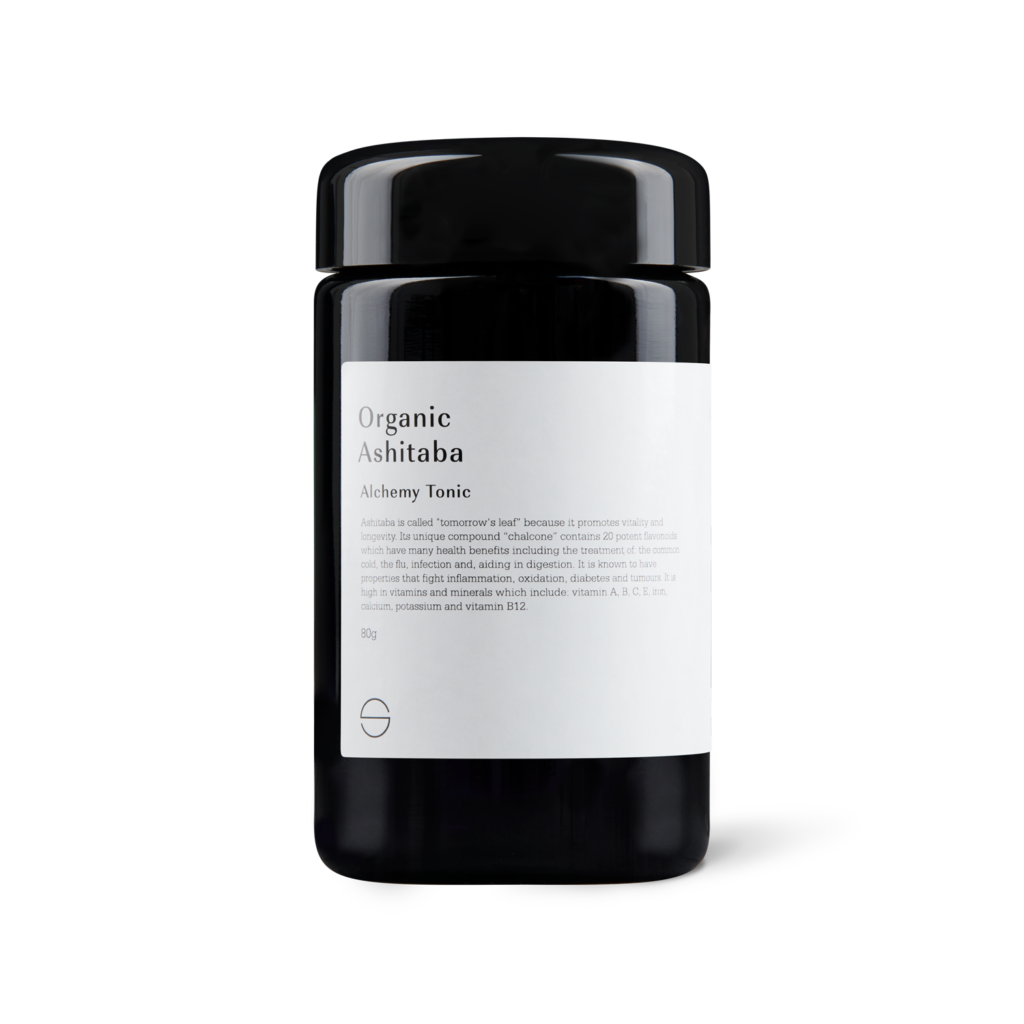
Ashitaba: One of the most notable benefits of Ashitaba is its ability to improve cognitive function. Animal studies have found that Ashitaba extract can improve memory, learning ability, and cognitive function in mice and rats.
In addition, Ashitaba has antioxidant and anti-inflammatory properties that may help protect the brain from damage caused by oxidative stress and inflammation. This can be beneficial in preventing or slowing down the progression of neurodegenerative diseases such as Alzheimer’s and Parkinson’s.
Ashitaba has also been found to have anxiolytic and antidepressant effects in animal studies. It has been shown to reduce anxiety-like behaviour and have antidepressant effects in mice and rats.
Furthermore, Ashitaba contains chalcones and a xanthohumol compound which are the active constituents in Nerve Growth Factor (NGF) support. Nerve Growth Factor (NGF) is a protein that plays a key role in the growth, maintenance, and survival of neurons in the nervous system.
Finally, Ashitaba has been found to increase levels of the neurotransmitter acetylcholine in animal studies. Acetylcholine is important for learning, memory, and other cognitive functions.
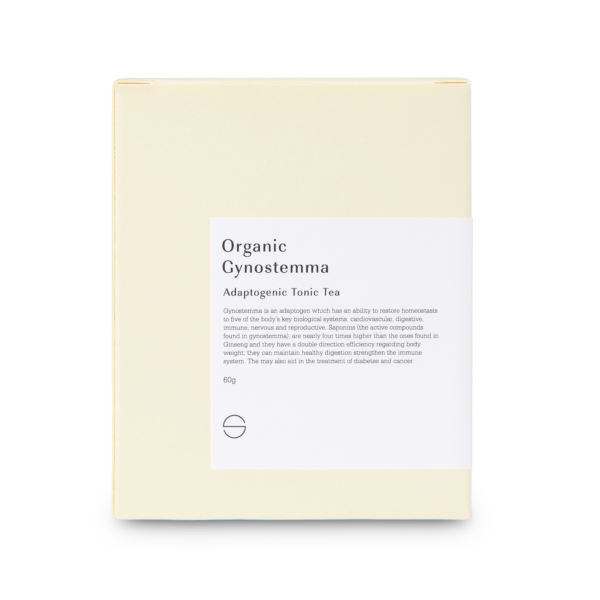
Gynostemma: Gynostemma can support brain function in several ways. Firstly, it has antioxidant properties that help reduce oxidative stress in the brain, which can lead to improved cognitive function and a reduced risk of neurodegenerative diseases such as Alzheimer’s and Parkinson’s.
Secondly, Gynostemma has anti-inflammatory properties that can help reduce inflammation in the brain, which has been linked to cognitive decline and an increased risk of various neurological conditions.
Thirdly, Gynostemma can improve circulation in the brain, which can increase the delivery of oxygen and nutrients to brain cells, supporting their health and function.
Additionally, Gynostemma has been found to have a positive effect on neurotransmitter levels, particularly dopamine and serotonin, which can improve mood and cognitive function.
Gynostemma is an adaptogenic herb, which means it can help the body and brain adapt to stress and reduce the negative impact of stress on cognitive function.
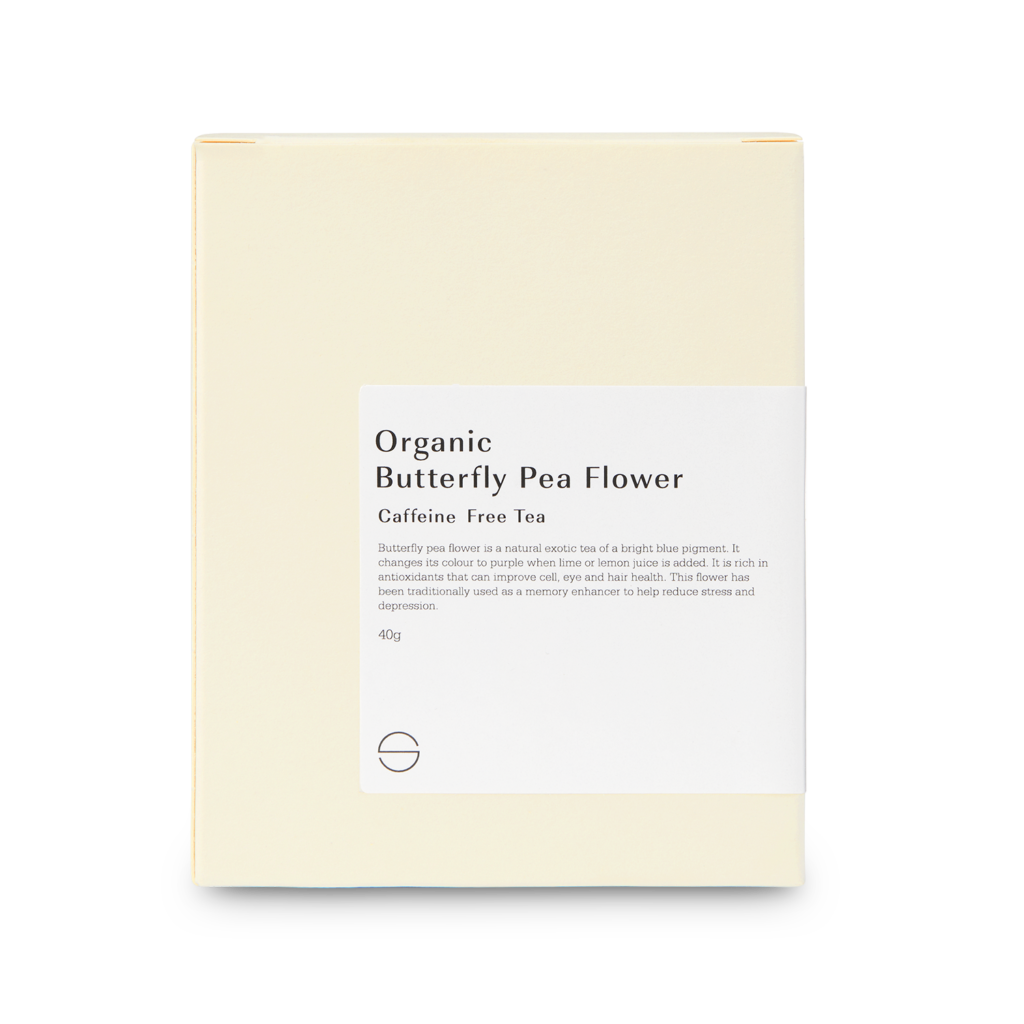
Butterfly Pea Blossom Flower: Several studies on animals have indicated that regular administration of blue butterfly pea extracts boosts the levels of a chemical called acetylcholine in their brain.
Acetylcholine is a neurotransmitter that supports brain health in various ways. It enhances memory by facilitating the formation of new memories, improves cognitive function by regulating attention, problem-solving, and decision-making, supports neuroplasticity by regulating the growth and development of neurons, and prevents cognitive decline by reducing the risk of neurological conditions such as Alzheimer’s disease.

We often think of the immune system as something that

A clean, effective way to care for your teeth, without

In the world of tonic herbs and medicinal mushrooms, there’s
Copyright Shoku Iku © 2024 | All Rights Reserved.
The statements on this website have not been evaluated by the TGA or FDA. These products are not intended to diagnose, treat, cure or prevent any disease.
Sign up to receive your discount.